Coppersmithing in Zanjan: a craft with ancient roots and modern challenges
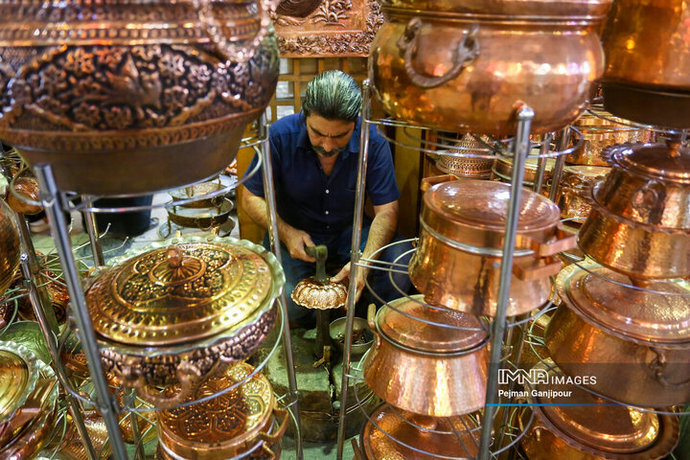
TEHRAN - Zanjan, a city steeped in history and tradition, is renowned for its ancient craft of coppersmithing, a tradition that dates back over a thousand years to the Sassanid era.
This craft, according to a recent report by IRNA, reached its pinnacle during the Seljuk period when local artisans began creating copper basins and ewers adorned with mythical animal motifs for the newly established Turkic rulers.
The craft further evolved during the Ilkhanate era when Chinese artists brought by Hulagu Khan influenced the local techniques, leading to the production of intricately designed copper vessels that were highly sought after in distant lands like China and the Mediterranean.
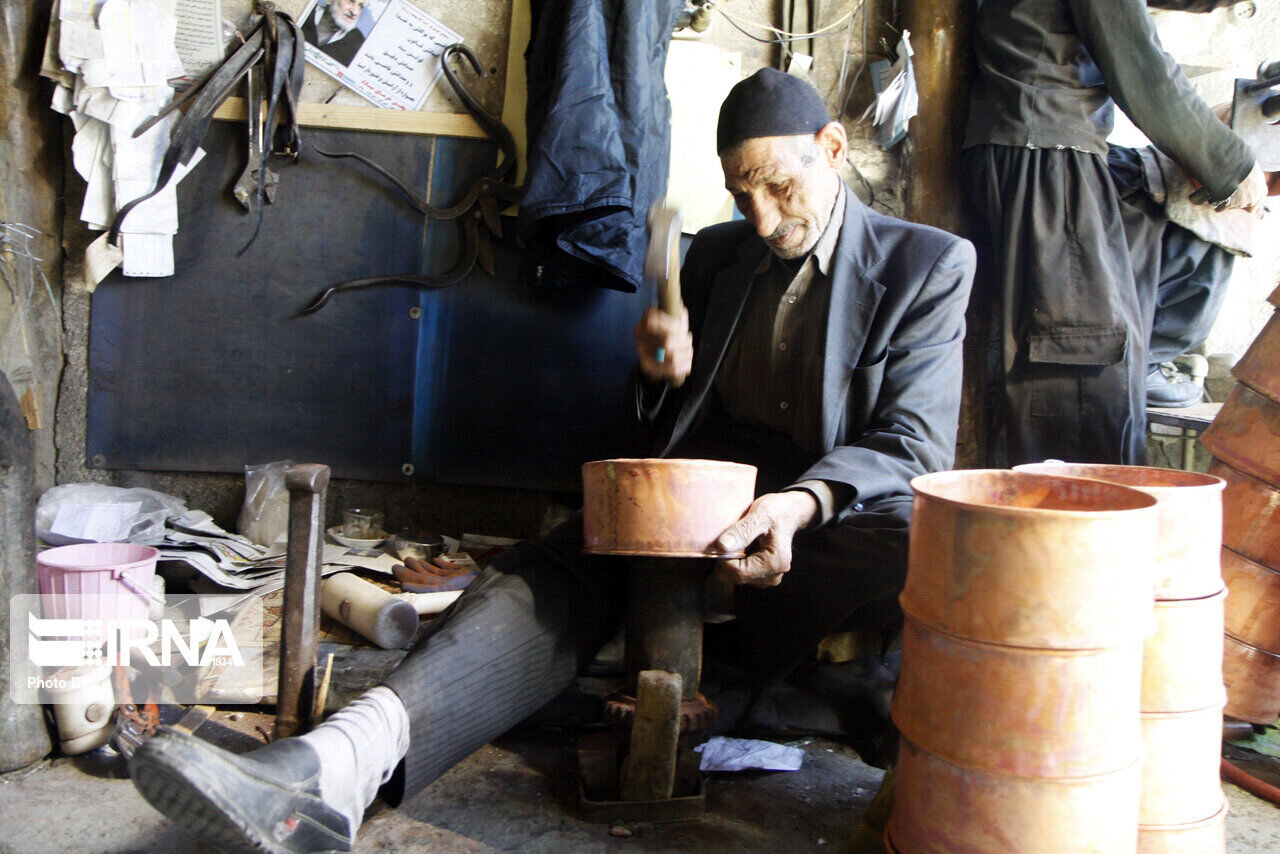
Despite its rich heritage, Zanjan’s coppersmithing has faced numerous challenges over the years. There were times when the art seemed on the verge of disappearing, as economic hardships and the allure of modern alternatives caused many artisans to abandon their craft.
However, in recent years, the rhythmic sound of hammers shaping copper has once again become a familiar melody in the alleyways of the bazaar of Zanjan. This resurgence is credited to the passion and dedication of local coppersmiths, who have worked tirelessly to preserve and revive this ancient art.
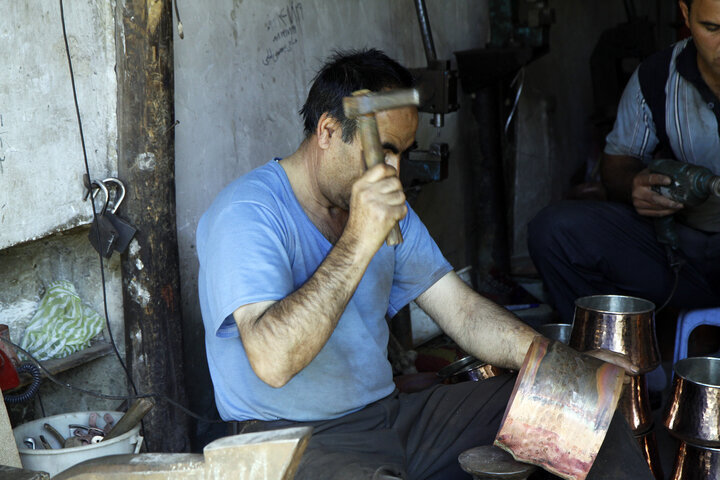
The craft’s revival has been bolstered by the efforts of local authorities and industry leaders who recognize the importance of supporting traditional artisans. However, significant challenges remain. The head of the Zanjan Coppersmiths' Union highlighted the issue of inadequate insurance coverage for artisans. According to a government directive, workshops with fewer than five employees are eligible for insurance subsidies, but many artisans still struggle to secure the necessary coverage, which is vital for the sustainability of their craft.
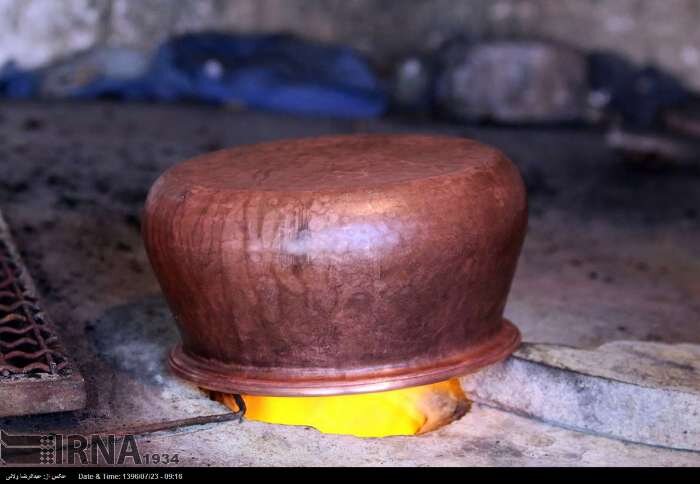
Currently, around 5,000 people are directly employed in Zanjan’s coppersmithing industry, with an additional 3,000 working indirectly. The industry produces an average of 15 tons of copperware daily, generating an estimated monthly revenue of 4,390 billion rials. This economic contribution is significant, not just for Zanjan but for the entire country, as the demand for handcrafted copper goods remains strong.
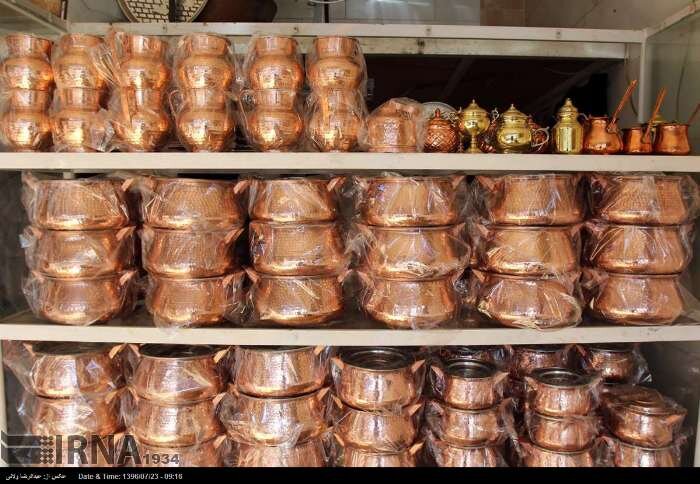
In the meantime, efforts are underway to enhance the export potential of Zanjan’s copperware, with meetings being held with the local Chamber of Commerce to explore new markets.
The coppersmiths’ union, however, is optimistic that these initiatives will bear fruit in the coming months, boosting the industry’s international presence.
AM
Leave a Comment